O! What a godlike power is that of doing good! I envy the rich and the great for nothing else!
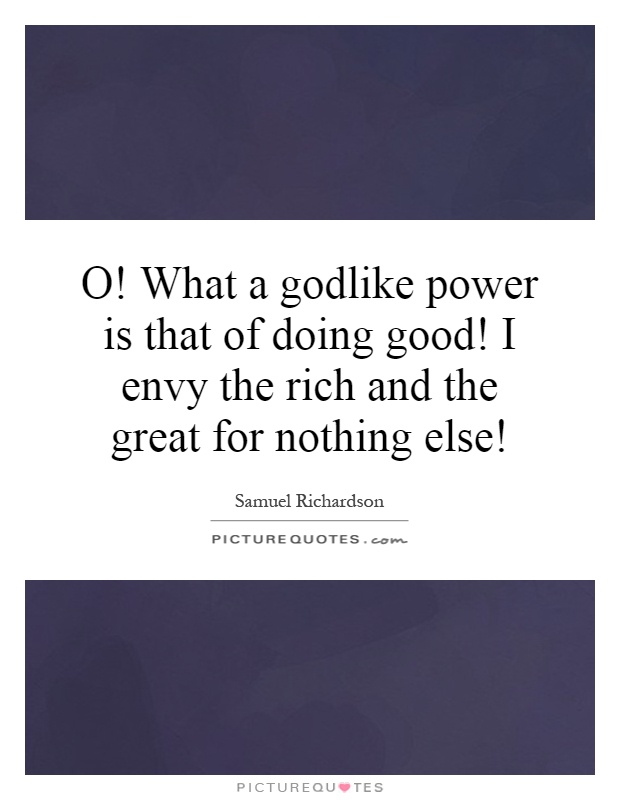
O! What a godlike power is that of doing good! I envy the rich and the great for nothing else!
Samuel Richardson, the renowned English writer and moralist, was a firm believer in the power of doing good. In his works, he often emphasized the importance of kindness, compassion, and benevolence towards others. Richardson's novels, such as "Pamela" and "Clarissa," are filled with characters who exhibit these virtues and who ultimately triumph over adversity through their acts of goodness.In the quote, "O! What a godlike power is that of doing good! I envy the rich and the great for nothing else!" Richardson expresses his admiration for those who use their wealth and influence to make a positive impact on the world. He sees the ability to do good as a divine gift, one that transcends material wealth and social status. Richardson believed that true greatness lies not in accumulating riches or power, but in using these resources to help others and make the world a better place.
Throughout his life, Richardson himself was known for his philanthropy and generosity. He was a devoted husband and father, a loyal friend, and a tireless advocate for social reform. He used his writing as a platform to promote moral values and inspire others to follow in his footsteps. Richardson's characters often face moral dilemmas and ethical challenges, but they ultimately choose the path of righteousness and virtue.
In the context of Samuel Richardson's work, the quote serves as a reminder of the transformative power of goodness. It is a call to action for readers to emulate the example set by his characters and strive to make a positive impact on the world around them. Richardson believed that true happiness and fulfillment come from acts of kindness and compassion, and that those who possess the means to do good have a moral obligation to do so.




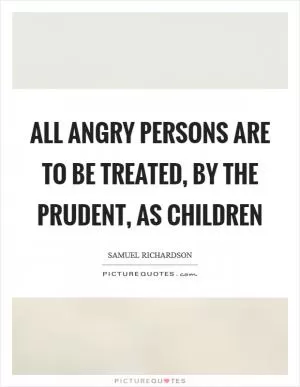

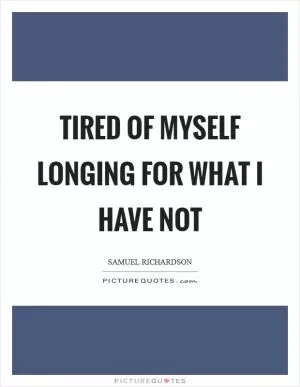

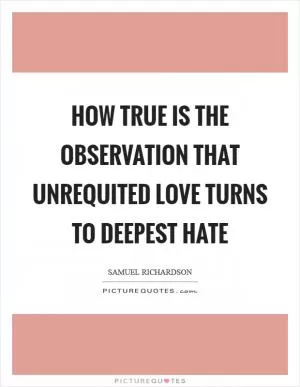
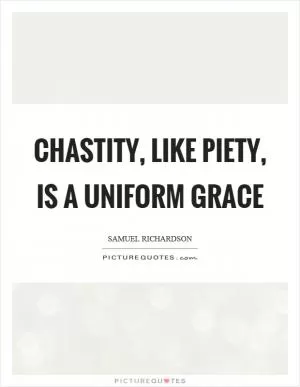


 Friendship Quotes
Friendship Quotes Love Quotes
Love Quotes Life Quotes
Life Quotes Funny Quotes
Funny Quotes Motivational Quotes
Motivational Quotes Inspirational Quotes
Inspirational Quotes